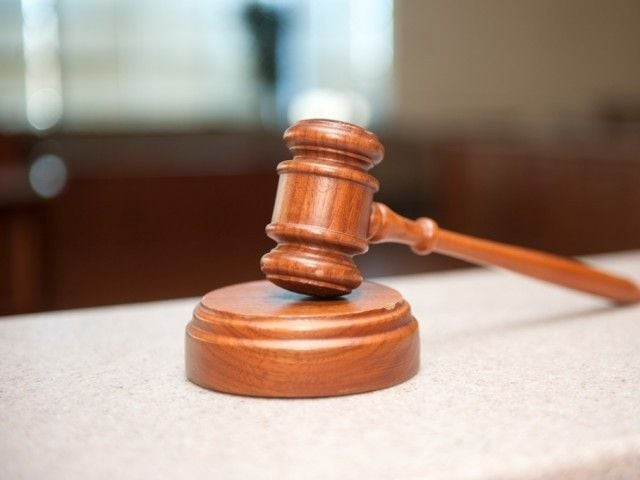Legal community in a bind
Opposing factions face-off over controversial amendment

The legal fraternity continues to grapple with deep divisions over the 26th Constitutional Amendment, which has tilted the balance of power in favour of the executive, granting it sway not only over judicial appointments but also on internal judiciary affairs.
The Independent Group, widely considered a pro-government faction within the legal community, has thrown its weight behind the amendment. Notably, the incumbent Supreme Court Bar Association (SCBA) president, Mian Mohammad Rauf Atta, is a prominent group member.
Conversely, the All Pakistan Lawyers Action Committee, comprising a majority of members from the Professional Group, has issued strong written statements opposing the amendment. Over the past weeks, the Independent Group, through the SCBA president, has consistently countered the committee's criticisms.
Meanwhile, the government has, so far, succeeded in dividing the legal fraternity over the 26th Constitutional Amendment.
Former additional attorney general Tariq Mahmood Khokhar has criticised the controversial amendment, asserting that it has accelerated the erosion of democracy and the rule of law in the country.
"The constitutional rights and independence of all our democratic institutions have been infringed, from the judiciary and parliament to the political parties, Election Commission of Pakistan, law enforcement agencies and mainstream media," he noted.
Khokhar also lamented the state of the legal fraternity and its bar associations, saying they are no exception to this trend. He observed that a significant portion of the legal community and its representative bodies are permeated with the ideas and prejudices of the executive.
"They have willingly lost their freedom and have co-opted to work with the executive. The executive's intent is to eliminate any potential centres of opposition to the state. The logical end can only be political, democratic, and judicial disenfranchisement of the nation," he warned.
Earlier, in its statement, the All Pakistan Lawyers Action Committee noted that the SCBA president's public endorsement of the 26th Amendment, which undermines judicial independence, aligns closely with the executive's interests.
It stated that it was imperative to state that Rauf Atta does not represent the consensus view of Pakistan's legal community, which remains resolutely committed to upholding the rule of law, constitutional supremacy and the independence of the judiciary.
Earlier, SCBA President Rauf Atta issued a statement explaining his position, saying that the support for the 26th Constitutional Amendment stemmed from two main considerations.
"First, it represents the collective will of the Parliament. Secondly, it has effectively curtailed judicial overreach and strengthened the very principle of the separation of powers for all times to come. Instead of being sceptical of the collective will of the Parliament, we must recognise and acknowledge that only the Parliament is competent to amend the Constitution. This power has been exercised lawfully, and we must respect this fact."
Atta further asserted that the judiciary had, over the years, overstepped its mandate, wasting resources and energy on prolonged political matters and often basing decisions on personal preferences.
He described this as a disruption to smooth governance.
"We believe that the 26th amendment has made the judiciary more independent than ever and has enhanced the accessibility of justice for ordinary citizens/litigants."
The SCBA president emphasized that the constitutional bench is fully operational.
"Any matters related to the 26th Amendment now fall exclusively under the jurisdiction of the Constitutional Bench. No one should compel the court to call a full court. Any such convening under political duress will have no relevance and shall not be accepted by the legal fraternity," he asserted.
"We strongly disapprove of the writing of such letters by a few individuals as their viewpoints have already been rejected by the legal community. They should refrain from creating divisions within the legal community. Any future attempts to do so will be met with a firm response," he stated.
On the other hand, the All Pakistan Lawyers Action Committee has strongly reacted to the SCBA president's statement, arguing that the demand for a full court hearing of the 26th Amendment case was not merely procedural but essential for ensuring legitimacy, transparency and fairness in a case that will shape Pakistan's constitutional landscape.
The committee stated, "The Constitution of Pakistan, under Article 184(3), grants the Supreme Court jurisdiction over matters of public importance involving fundamental rights. Given the gravity of the issues raised by the 26th Amendment, it is imperative that the matter be heard by a full court comprising all judges."
It also criticised claims that the Judicial Commission of Pakistan (JCP) remains balanced post-amendment, calling them contrary to reality. It pointed out that the 26th Amendment has disrupted the delicate balance, effectively making the executive the 'master of the roster.'
"This is incompatible with the principle of separation of powers enshrined in Articles 175 and 177 of the Constitution."
The committee further stated that their opposition to the 26th Amendment is supported by distinguished members of the legal community, including former SCBA presidents, current and former bar association officeholders, and members of provincial bar councils and the Pakistan Bar Council.
They rejected any threats or attempts to silence dissent within the legal fraternity, emphasizing, "Article 19 of the Constitution of Pakistan guarantees the freedom of speech, which includes the right to critique and question actions that undermine judicial independence."



















COMMENTS
Comments are moderated and generally will be posted if they are on-topic and not abusive.
For more information, please see our Comments FAQ